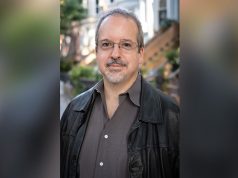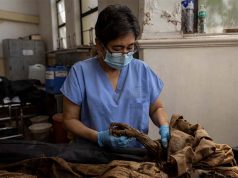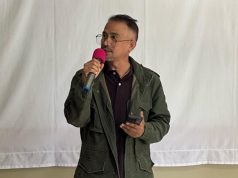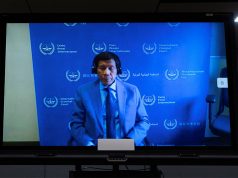This is part of a series of stories on some — in truth, but a handful — of the families left behind by the thousands of victims of the extrajudicial killings that have marked the war on drugs waged by the government, which also turned one year old with the presidency of Rodrigo Duterte.
Dennis*, 37, regularly did the marketing for his small business selling breakfast and barbecue to his neighbors in Barangay Payatas, Quezon City.
His bayong’s contents would invariably include twenty-peso toys or five-peso donuts for his four children.
On May 17, he left home at 5:30 a.m. to go to the market. His wife, Carly*, 33, saw him off at the gate. He told her to return indoors as it was still dark and the kids needed looking after. So she bade him goodbye and went back to sleep.
At 8 a.m., Carly could no longer contact his cellphone. He never switched his mobile off and he was usually home within 30 minutes. They prepared the food for their customers together, but he was always the one behind the stove.
“Kaya po ‘yun, kinabahan na ako kasi hindi puwedeng hindi ‘yun uuwi ng bahay (That’s why I started to get nervous because he wouldn’t not go home),” Carly said.
She made the rounds of relatives’ homes and nearby police stations searching for Dennis, only returning home when she ran out of money and still not knowing where he was.
It was already May 28 when Carly went to Camp Karingal, the headquarters of the Quezon City Police District. There she was told her husband was in the morgue. He had been dead, they said, since May 19, two days since he left home.
They said Dennis was part of a “riding-in-tandem” involved in a holdup and who died in in a shootout with the police.
At the morgue, Carly was shown only a photo of his corpse. One side Dennis’ face was disfigured, dark, and swollen, but she could make out their son’s name tattooed on his chest.
The death certificate showed the cause of death to be bullet wounds in the temple and the back of the head. It didn’t say how many.
Carly was only able to lay eyes on her husband when he was returned to them in a coffin.
“Ayaw kasi sa amin ipakita nu’ng morgue (The people at the morgue didn’t want to show us his body),” Carly said.
This was before the people at the morgue gave her a letter to submit to the Quezon City police requesting for an autopsy and a copy of the spot report. According to the spot report, a plastic bag containing “suspected shabu” was found on Dennis’ person.
But Carly was sure her husband did not use drugs and dared them to test his body. Nor was he on any drug list.
Dennis had been dead for a month before he was finally buried, with the help of donations from the church and the office of Vice Mayor Joy Belmonte.
Asked if any of their four children, aged four to 12, understands what happened, Carly said the nine-year-old daughter does because she had learned of the incident from a report she saw on YouTube.
“Kaya po ‘pag nakakakita ng pulis lalo na ‘yung mga anak ko, natatakot po sila (That’s why every time they see a policeman, they get scared),” Carly said. Police regularly come knocking at the doors of their community, ostensibly in search of drug users and pushers.
The children are traumatized and refuse to be left alone, Carly said. Her youngest son takes with him everywhere he goes the Spiderman toy his father gave him.
As for Carly, she is trying to revive their food business despite her lack of skills in the kitchen.
“Siya po talaga ‘yung nagpapasok ng income sa amin (My husband was really the one who brought in the income),” she explained.
Carly wishes her husband had been jailed for his alleged crime. Most of all, she wishes that only the truly guilty are made to face the consequences of their actions.
*Names have been changed to protect the people’s identity.










